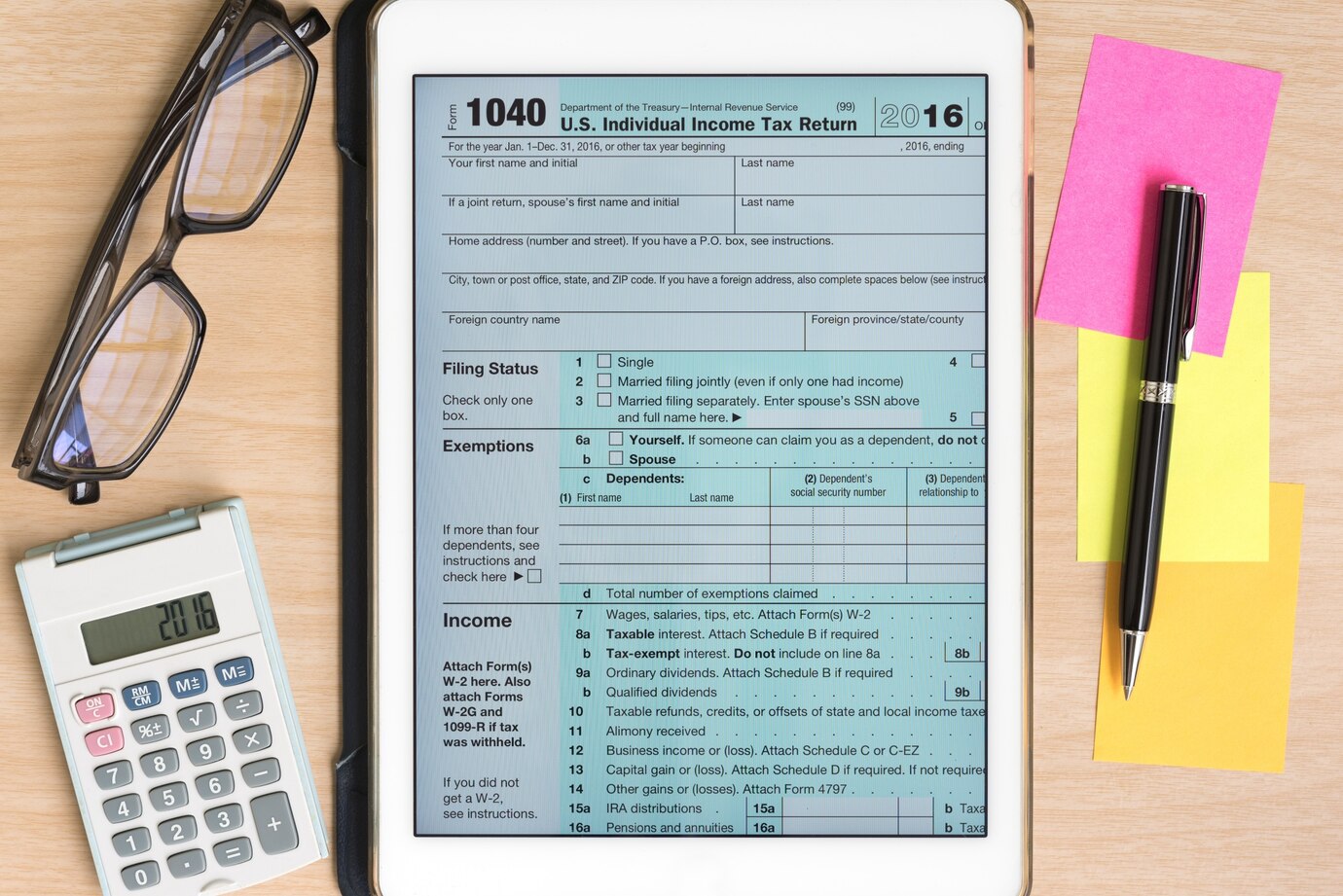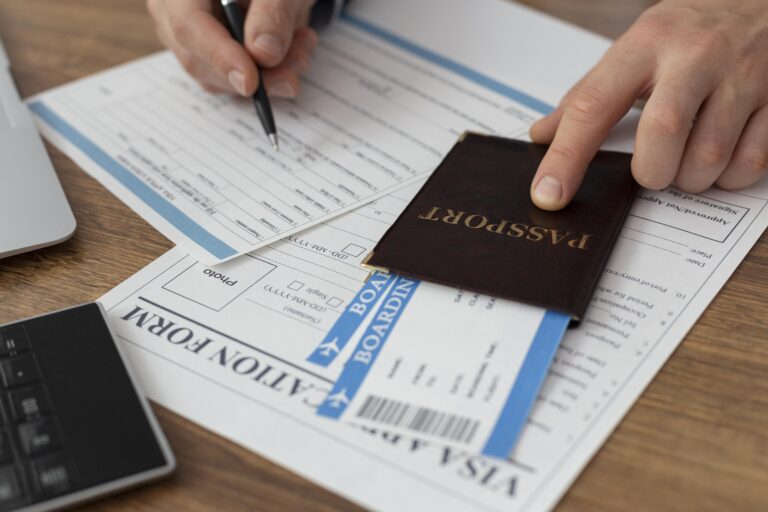Taxes are not the most exciting topic, but they are crucial in funding public service organizations that benefit all taxpayers. From maintaining roads and schools to improving healthcare and security, tax contributions help sustain national and local infrastructure. When you file taxes, you fulfill a civic duty that contributes to the welfare of society. So here’s your guide on how to file your own taxes!
But first and foremost, make sure you file on time! Filing your taxes on time offers several advantages, including:
- Avoiding Hefty Penalties: Late filing can lead to fines and interest on the amount owed.
- Preventing Identity Theft: The sooner you file, the less lead time given to identity thieves to file a false return in your name.
- Receiving Your Refund Sooner: Timely filing results in receiving your refund quicker if you’re entitled to one.
- Creating Peace of Mind: Reduce stress by checking tax filing off your list of to-dos.
How to File Your Own Taxes
- Gather Your Documents
Begin by organizing all necessary documents before starting the tax filing process. This includes W-2s, 1099s, receipts for deductible expenses, and any other relevant financial records. Having everything in one place reduces the risk of missing important information and helps ensure that all income and deductions are accurately reported.
- Determine Your Filing Status
Your filing status affects your tax rate and eligibility for certain deductions and credits. A CPA can help you majorly here. Maximizing your benefits, and reducing any errors due to inaccurate status.
- Standard Deduction and Itemizing Your Deductions
Decide whether you should take the standard deduction or if itemizing your deductions could save you more, based on your expenses.
- Select a Tax Filing Method
Decide whether you will use tax software, hire a professional/ CPA, or fill out paper forms manually. Online software can guide you step by step through the filing process, making it ideal for those with relatively straightforward tax situations.
- Fill Out and File Your Tax Return
Carefully fill out your tax return form with accurate information. Double-check all personal information, such as Social Security numbers and bank account details, to prevent errors that could delay processing or result in incorrect tax filings. Even small mistakes in these areas can lead to significant issues, so it’s crucial to verify this information carefully.
- Review Your Return Status
After submitting, regularly check the status of your return to ensure it is processed. You can do this through the IRS’s online tool ‘Where’s My Refund?’.
- Resort to Resources
Consider using IRS resources, such as the IRS Free File program, which offers free access to tax preparation software for eligible individuals. The IRS website also provides a wealth of information, including publications and FAQs, that can help clarify any uncertainties about tax rules and calculations.
- Save the Dates
Being aware of tax season dates ensures you remain on top of your financial responsibilities:
- April 15: Traditionally known as Tax Day, this is the deadline for filing your tax return. If this date falls on a weekend or holiday, the deadline may shift to the next business day.
- October 15: This is the extended deadline if you apply for an automatic extension using Form 4868, giving you an additional six months to file your return.
- Quarterly Estimated Payments: If you are self-employed or have additional sources of income like freelancers do, remember to pay estimated taxes quarterly. Key dates are April 15, June 15, September 15, and January 15 of the following year. Filing extensions provide more time to file your taxes, but note that they don’t extend the time to pay any taxes due. If you anticipate owing taxes, consider submitting an estimated payment by April 15 to avoid interest and penalties.
- When in Doubt, Hire a CPA
If you feel uncertain about any aspect of your tax return, don’t hesitate to seek assistance. This could mean reaching out to a tax professional for advice or consulting with a knowledgeable friend or family member. While filing taxes independently is achievable, it’s important to recognize when expert guidance might be beneficial.
Deciding whether to hire a Certified Public Accountant (CPA) or to file your own taxes is a common dilemma for many taxpayers. Both options have their merits, and the choice ultimately depends on your circumstances, tax complexity, and confidence in handling financial documents.
Benefits of Hiring a CPA:
- Expertise: CPAs have extensive knowledge and can navigate complex tax situations efficiently, and on time!
- Time-Saving: Delegating this task allows you to focus on other important personal or professional matters.
- Risk Management: A CPA can help minimize errors and audit risks by ensuring compliance with the latest tax laws.
Benefits of Filing Your Own Taxes:
- Cost-Effective: It can be more economical, especially if your tax situation is straightforward.
- Understanding Your Finances: Doing your own taxes can provide insights into your financial situation and improve financial literacy.
- Control: You have complete control over the process and can manage your filing at your own pace.
Ultimately, if your taxes are simple and you’re comfortable using tax software, filing your own taxes might be the way to go. However, if you have multiple sources of income, own a business, or simply want peace of mind, hiring a CPA could be the safer bet.
And we at Zaouk CPAs are here to guide you through the filing process to simplify it for you. Filing on your own, especially the first time might be overwhelming, and relying on a professional until you get the hang of this process might be a wise decision to make.
Click below to book your first consultation before tax season!






